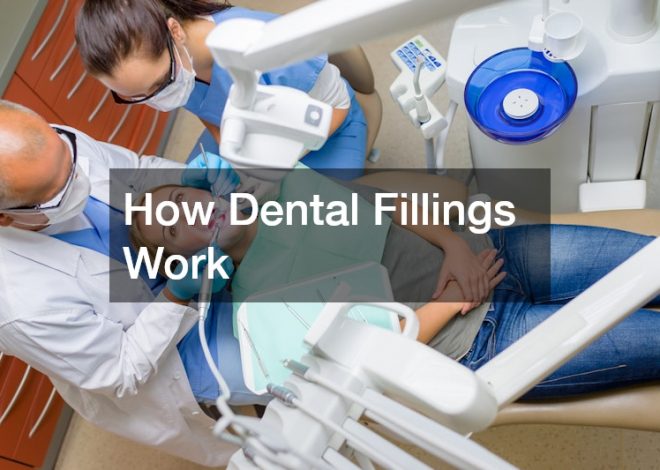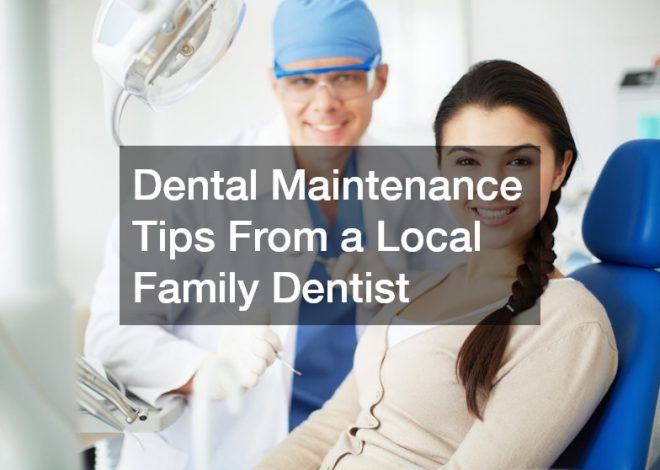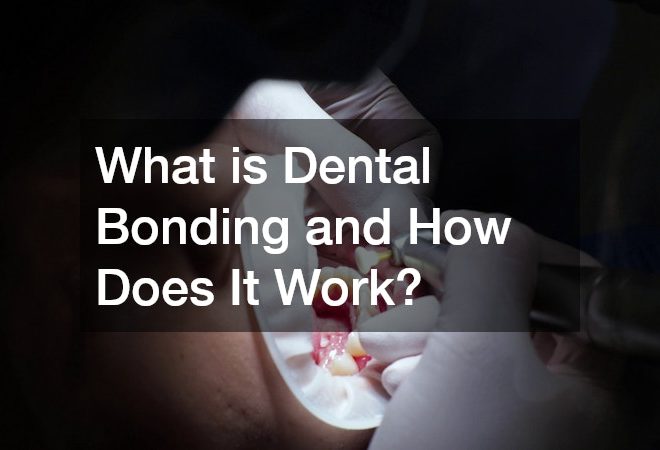
What Every Dental Patient Should Know

Navigating the world of dental care can be overwhelming, given the various aspects that need attention to maintain a healthy smile. From preventative care to handling unexpected dental crises, each component plays a pivotal role in ensuring oral health. Moreover, the rise of cosmetic dentistry has introduced new procedures that promise both health benefits and aesthetic improvements. Selecting the right dental professional and office for your needs can be instrumental in achieving excellent oral health. Understanding these complexities involves more than just following routines; it requires a well-rounded knowledge of different procedures, dentist roles, and patient rights.
Dental health contributes significantly to overall well-being, making it an essential component of healthcare that shouldn’t be overlooked. Proper dental practices not only enhance the quality of life but also serve as preventive measures against serious health issues. As dental advancements continue to evolve, staying informed about best practices and available options becomes crucial. From regular teeth cleanings to emergency visits, each step in dental care requires deliberate action to ensure positive outcomes. As we delve deeper into each aspect, we will explore how combining preventive and cosmetic dentistry can yield long-term benefits. This guide aims to provide comprehensive insights into making informed decisions concerning your dental health.
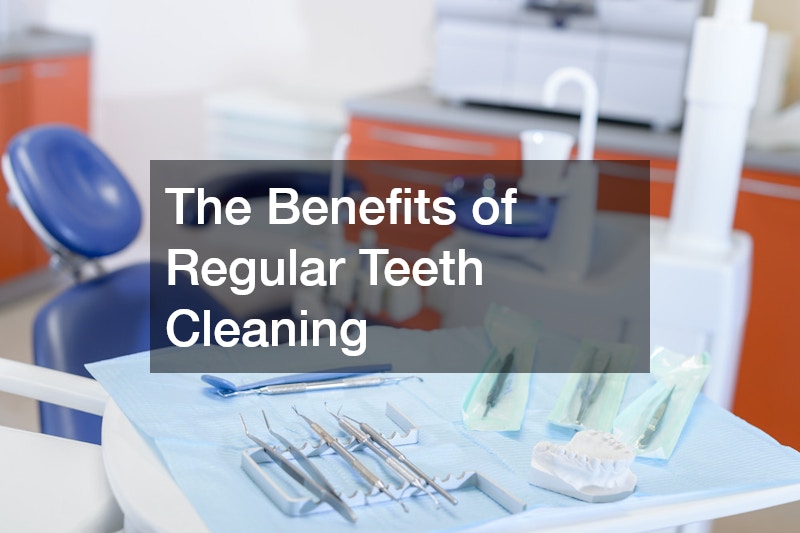
The Benefits of Regular Teeth Cleaning
Regular teeth cleaning is a cornerstone of maintaining healthy teeth and gums. By removing plaque and tartar, professional cleanings significantly reduce the risk of cavities and gum disease. This practice is essential in preventing other systemic diseases linked to oral health problems.
Visiting a dentist for routine cleanings allows for the early detection of potential issues. A dentist can identify signs of decay, gum problems, or other dental conditions that may require intervention. This proactive approach not only preserves dental health but also reduces the need for more invasive procedures.
Beyond health benefits, regular cleanings also improve the aesthetics of your smile. Professional cleanings help remove stains caused by coffee, tea, and tobacco, leading to a brighter smile. These routine visits contribute to maintaining both oral health and the appearance of your teeth.
What to Know About Professional Teeth Whitening
Professional teeth whitening is a popular cosmetic dental procedure that offers a quick and effective way to improve the appearance of your smile. Unlike over-the-counter products, professional whitening is tailored to your specific needs and ensures optimal results. Consulting a dentist before treatment ensures a safe and suitable approach.
The purpose of a dentist in teeth whitening extends beyond superficial improvements. Dentists assess the health of your teeth and gums to determine the most effective whitening technique. This ensures the procedure supports overall dental health without causing undue sensitivity or damage.
Additionally, a professional whitening can boost confidence and self-esteem. A brighter smile enhances personal and professional interactions, making it a valuable investment in one’s appearance. By working with local dentists , patients can access personalized care that aligns with their dental goals.

Choosing the Right Dental Office
Choosing the right dental office is crucial for receiving consistent, quality care. Factors like location, services offered, and dentist qualifications play significant roles in determining the best fit, having a trustworthy dentist enhances your comfort and satisfaction with dental services.
Local dental offices often provide personalized care that larger practices may not offer. These offices are more likely to build lasting relationships with patients, tailoring treatments to specific needs and preferences. A good fit can involve aligning with your values and expectations for health outcomes.
The purpose of a dentist goes beyond treatments; they are partners in your oral health journey. Establishing a rapport with your local dentists fosters open communication, leading to better understanding and improved dental care experiences, ensuring compatibility with the dental office contributes to effective long-term care.
What to Do During an Emergency Dental Visit
Dental emergencies can arise unexpectedly, requiring prompt and effective responses. Knowing what to do during an emergency dental visit can make a significant difference in outcomes. Immediate response often helps in preserving teeth and alleviating pain.
Contacting a dentist quickly is critical when emergencies occur. Dentists in emergency situations provide vital interventions to address pain, damage, and potential risks to oral health. It’s important to have contact information for local dental offices pre-saved for quick access.
The purpose of a dentist during emergencies is to stabilize the situation and prevent further complications. Their expertise is instrumental in diagnosing issues and providing immediate care tailored to the condition’s severity. In emergencies, clear communication with your dental professional is paramount for efficient treatment.
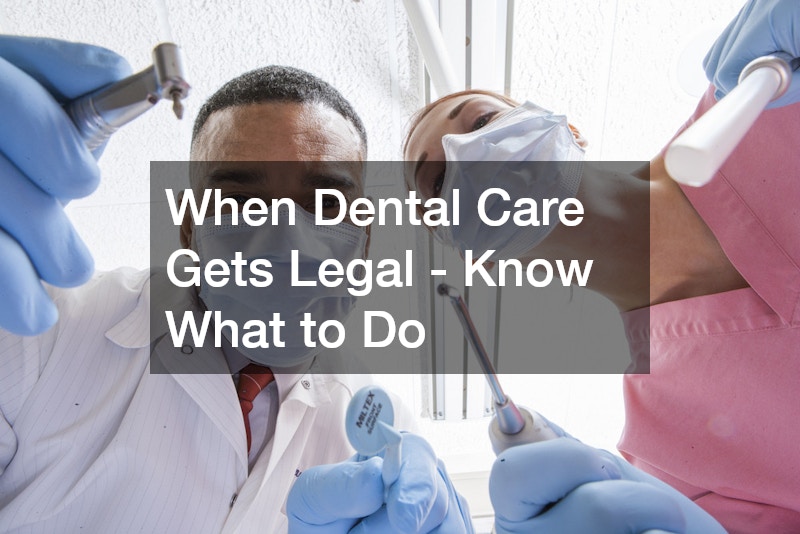
When Dental Care Gets Legal – Know What to Do
There are instances where dental care intersects with legal considerations, especially in cases involving injuries or malpractice. Understanding the role of a personal injury lawyer is crucial in such scenarios. Their guidance can ensure that legal rights are protected and proper action is taken.
Lawyers specializing in dental cases provide the necessary support when legal issues arise. They work to hold parties accountable for negligence, ensuring patients receive compensation for injuries or damages incurred. This support can be crucial to navigating the complexities of legal implications in dental care.
The purpose of a dentist in these instances includes providing thorough documentation and expert testimony if necessary. Dentists play a role in assessing the extent of harm and verifying the necessity of treatments that may be disputed in court. By collaborating with your personal injury lawyer, you ensure that your case is firmly supported.
How Dental Waste Disposal Works
Proper dental waste disposal is an integral aspect of maintaining the hygienic operations of a dental office. Managing waste materials, such as sharps and biomedical waste, is crucial for safety and environmental compliance. Effective waste management protocols are essential for superior infection control.
Dental waste disposal involves the adherence to regulations governing the disposal of hazardous materials. Dentists ensure that waste elimination practices adhere to local, state, and federal guidelines. This adherence protects both public health and the environment from contamination risks.
The purpose of a dentist in waste management is to oversee the correct classification and disposal of various waste types. Understanding these protocols helps safeguard the office environment and the larger community. A focus on safe waste practices reflects a commitment to professional responsibility and ecological stewardship.

Every Family Needs a Reliable Family Dentist
A family dentist plays a pivotal role in maintaining the collective oral health of a household. Having a single point of care provider simplifies dental visits and fosters a consistent approach to family dental health, this relationship brings continuity to personalized treatment plans across different family members.
Family dentists are equipped to handle a wide range of dental needs, from pediatric care to adult dentistry, making them versatile and valuable healthcare providers. Their comprehensive expertise addresses the entire family’s needs in one location, enhancing convenience and holistic care.
The purpose of a family dentist extends beyond treatment; they provide education on preventive care and healthy practices. They guide families through the best practices for oral hygiene and dental care routines. Building a long-term relationship with a trusted family dentist ensures individualized and attentive care.
Preventive vs. Cosmetic
Understanding the difference between preventive and cosmetic dental care is important for informed decision-making. Preventive care focuses on maintaining health and preventing disease, while cosmetic procedures enhance the appearance of teeth. Balancing both forms of care maximizes the benefits to dental wellbeing.
Preventive dentistry emphasizes practices such as cleaning, fluoride treatments, and sealants — all aimed at reducing risks to oral health. These foundational strategies help preserve natural teeth and minimize the need for extensive treatments later on.
Cosmetic dentistry pursues aesthetic goals, involving treatments like veneers, bonding, and teeth whitening. These procedures can significantly elevate the look of one’s smile, boosting confidence and self-image. Consulting a dentist to gauge the appropriate balance between these care types is essential for overall satisfaction.
How to Prepare for Your Next Dental Appointment
Preparing for a dental appointment involves several steps to ensure a productive visit. Gathering medical history and previous dental records enables the dentist to maintain continuity of care. Having a clear list of concerns or symptoms allows for focused discussions and efficient consultations.
Understanding what procedures will be performed during the appointment helps manage expectations and time allocation. It ensures that all necessary preparations, like pre-appointment medications or insurance verifications, are handled smoothly.
The purpose of preparation is to maximize the visit’s effectiveness, reducing stress and enhancing the patient experience. By being proactive, patients contribute to the efficacy of their dental care and the achievement of positive health outcomes. Thorough preparation sets the tone for constructive interactions with your dentist.
Building a Smile Support Team
In the realm of oral healthcare, communication and trust are not just helpful—they are essential. These two components form the foundation of a successful and collaborative dental support team. Whether you’re managing routine dental care or navigating more complex oral health concerns, having a team that communicates effectively and operates from a foundation of trust can significantly enhance both the experience and the outcomes of your care.
A strong dental support team typically includes a family dentist, dental hygienists, specialists (such as orthodontists, periodontists, or oral surgeons), and sometimes even general healthcare providers who play a role in your overall wellness. When this team works cohesively, with open lines of communication and mutual respect, patients benefit from more accurate diagnoses, coordinated care plans, and better long-term results.
Patients, in particular, gain immense value from the collective expertise of such a team. Each member brings a unique perspective and specialized knowledge, allowing for comprehensive evaluations and treatment strategies. For example, while a general dentist may monitor your day-to-day dental health, a periodontist might step in to manage gum disease, while an orthodontist could address alignment issues. When all professionals are aligned in their communication and goals, care becomes more seamless and efficient.
Moreover, fostering a positive, trusting relationship with your dental care providers helps to reduce anxiety and increase comfort during visits. Patients who feel heard and respected are more likely to share concerns, adhere to treatment plans, and return for regular care. This mutual trust enhances the patient experience and plays a crucial role in achieving and maintaining dental wellness over time.
Trust also encourages transparency. A supportive dental team will ensure that you are fully informed about your treatment options, understand the reasoning behind recommendations, and are comfortable with the path forward. This transparency builds patient confidence and enables shared decision-making, which is increasingly recognized as a best practice in healthcare.
Good communication within the dental team—both with patients and among providers—also allows for timely interventions. Whether coordinating appointments, sharing diagnostic information, or discussing treatment adjustments, communication keeps everyone on the same page and supports a smoother, more responsive care journey. It minimizes errors, reduces redundant procedures, and ensures that your dental care is both personalized and proactive.
Furthermore, when communication flows effectively, it also leads to stronger educational support for patients. Dental professionals can better advise you on daily oral hygiene routines, dietary choices, or post-treatment care when they understand your needs and concerns clearly. This guidance empowers patients to take an active role in their own oral health, reinforcing the benefits of professional care with smart, informed habits at home.
In conclusion, communication and trust are key to creating a dental support team that delivers exceptional care. By cultivating a strong, transparent relationship with your dental providers, you open the door to well-coordinated treatments, greater satisfaction, and long-term oral health success.
In conclusion, dental care encompasses a wide range of practices and considerations that are vital for sustained oral health. From routine teeth cleanings to local dentists’ expertise, each component contributes uniquely to preserving and enhancing dental wellbeing. A balanced approach that involves preventive and cosmetic dentistry provides both functional health and aesthetic satisfaction. Working closely with reliable local dental offices ensures personalized care tailored to individual or family needs. In times of crisis, having access to emergency dental services is crucial for mitigating long-term damage. Moreover, understanding the legal landscape in dental matters empowers patients to protect their rights when necessary. This includes being informed about consent, insurance policies, and treatment options, all of which help foster transparency and trust between patients and providers. Consistent education on oral hygiene, paired with modern technology in diagnostics and treatment, further strengthens dental outcomes.
Finding the right family dentist forms the bedrock of effective lifelong oral care, emphasizing continuity, education, and personalized treatment. Preparing for appointments enhances the effectiveness of dental visits, and building a diverse support team fosters comprehensive care strategies. Dental waste management underscores ethical and safe practices within dental offices, reinforcing community health standards. Embracing preventative care and staying informed about oral health trends further contributes to lasting wellness. Overall, a combination of knowledge, preparation, and collaboration forms the foundation for sustainable dental health and a bright, healthy smile. Partnering with a trusted dental provider creates a proactive environment where early detection and tailored treatments are prioritized, ultimately leading to better outcomes and a more confident patient experience.
